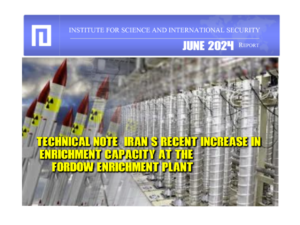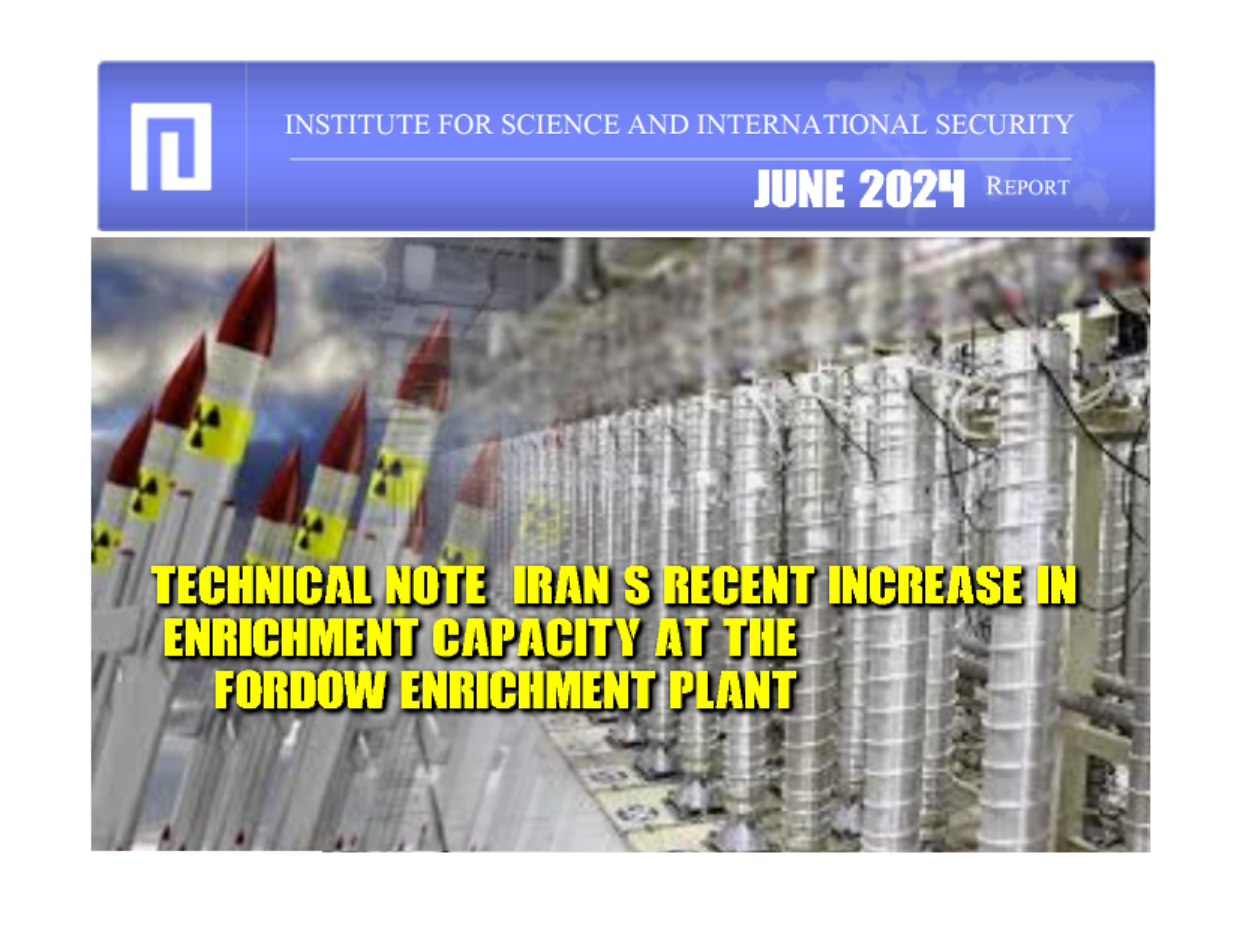 Iran notified the IAEA recently that it would install eight cascades each containing 174 IR-6 centrifuges, about 1400 in total, at the underground Fordow Enrichment Plant over the next 3-4 weeks. Iran’s installation of eight more IR-6 cascades in Fordow represents a dramatic increase in Fordow’s total enrichment capacity, an increase of about 3.6 times more capacity. In May 2024, Fordow had six low-output IR-1 cascades and two IR-6 cascades; soon it will have 10 IR-6 cascades and six IR-1 cascades. Considering the likely case where Iran installs eight more IR-6 cascades at Fordow in the next several weeks, and noting it already has two IR-6 cascades at Fordow, breakout could occur rapidly, once the Iranian regime decides to do so. First, by further enriching its 60 percent enriched uranium stock in its possession as of May 11, 2024, Iran could produce 92 kg of weapon-grade uranium (WGU) in one-third of a month after commencing breakout. Next, by further enriching its stock of 20 percent enriched uranium as of May 11, 2024 in these same 10 cascades, Iran could produce 135 kg of WGU during the following two months. These estimates assume that the IR-6 cascades will perform well.
Iran notified the IAEA recently that it would install eight cascades each containing 174 IR-6 centrifuges, about 1400 in total, at the underground Fordow Enrichment Plant over the next 3-4 weeks. Iran’s installation of eight more IR-6 cascades in Fordow represents a dramatic increase in Fordow’s total enrichment capacity, an increase of about 3.6 times more capacity. In May 2024, Fordow had six low-output IR-1 cascades and two IR-6 cascades; soon it will have 10 IR-6 cascades and six IR-1 cascades. Considering the likely case where Iran installs eight more IR-6 cascades at Fordow in the next several weeks, and noting it already has two IR-6 cascades at Fordow, breakout could occur rapidly, once the Iranian regime decides to do so. First, by further enriching its 60 percent enriched uranium stock in its possession as of May 11, 2024, Iran could produce 92 kg of weapon-grade uranium (WGU) in one-third of a month after commencing breakout. Next, by further enriching its stock of 20 percent enriched uranium as of May 11, 2024 in these same 10 cascades, Iran could produce 135 kg of WGU during the following two months. These estimates assume that the IR-6 cascades will perform well.
VIENNA (AP) — The U.N. nuclear watchdog’s board on Wednesday censured Iran for failing to cooperate fully with the agency, diplomats said, calling on Tehran to provide answers in a long-running investigation and reverse its decision to bar several experienced U.N. inspectors.
Iran’s Foreign Ministry issued a late-night statement in response to the vote, saying it “strongly condemns” the action taken by the IAEA’s board of governors and called the move political.
The censure followed a report by the International Atomic Energy Agency a week ago that said Iran has further increased its stockpile of uranium enriched to near weapons-grade levels, the latest in Tehran’s attempts to steadily exert pressure on the international community.
The vote by the 35-member board at the IAEA headquarters in Vienna sets the stage for a likely further escalation of tensions between the agency and Iran, which has reacted strongly to similar previous resolutions.
“The Islamic Republic of Iran considers the presentation and approval of this resolution to be a political and non-constructive action and a continuation of the previous failed policies of some Western countries and an attempt to politically abuse international mechanisms against independent countries,” the statement from Iran’s Foreign Ministry read.



